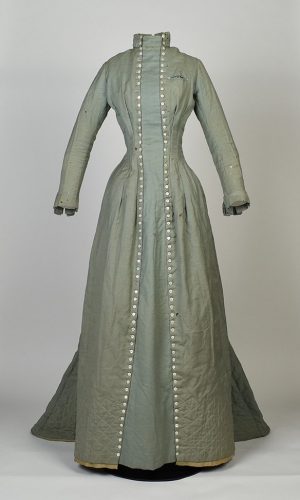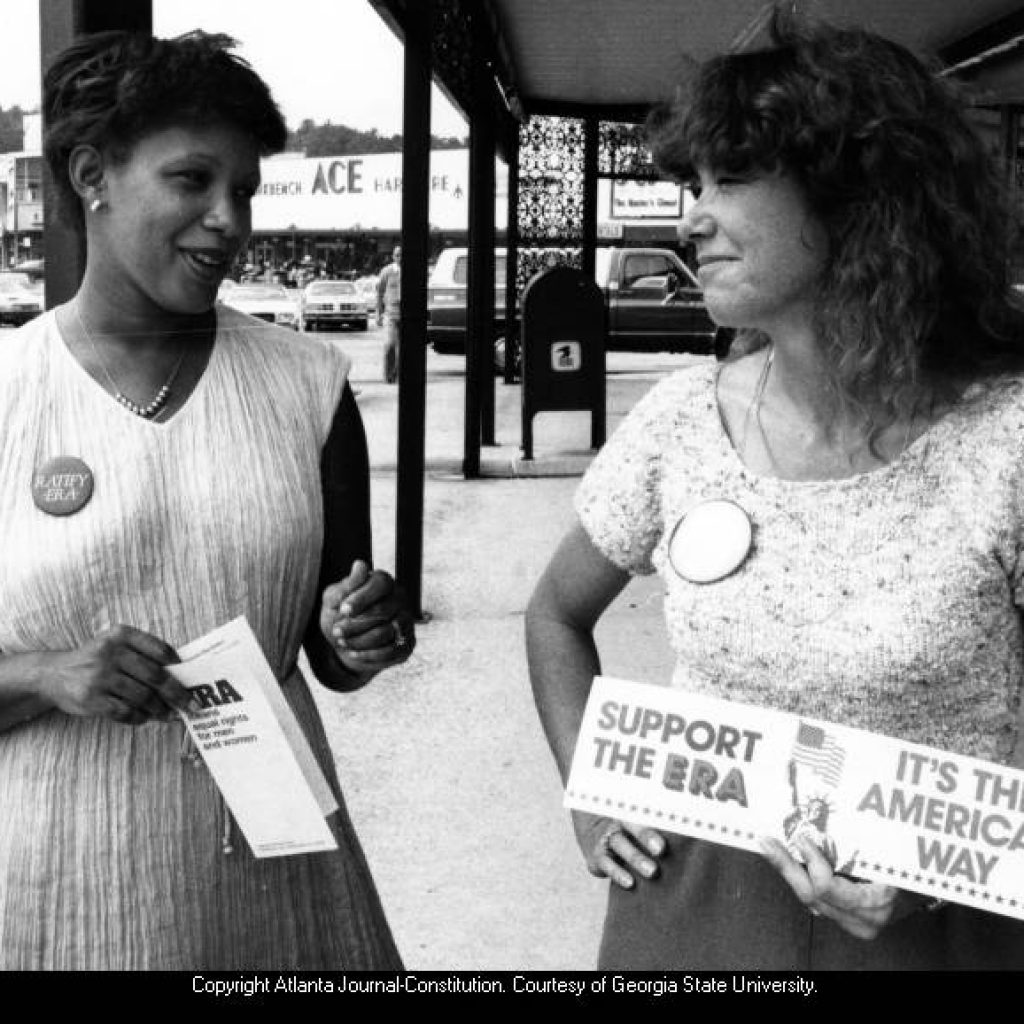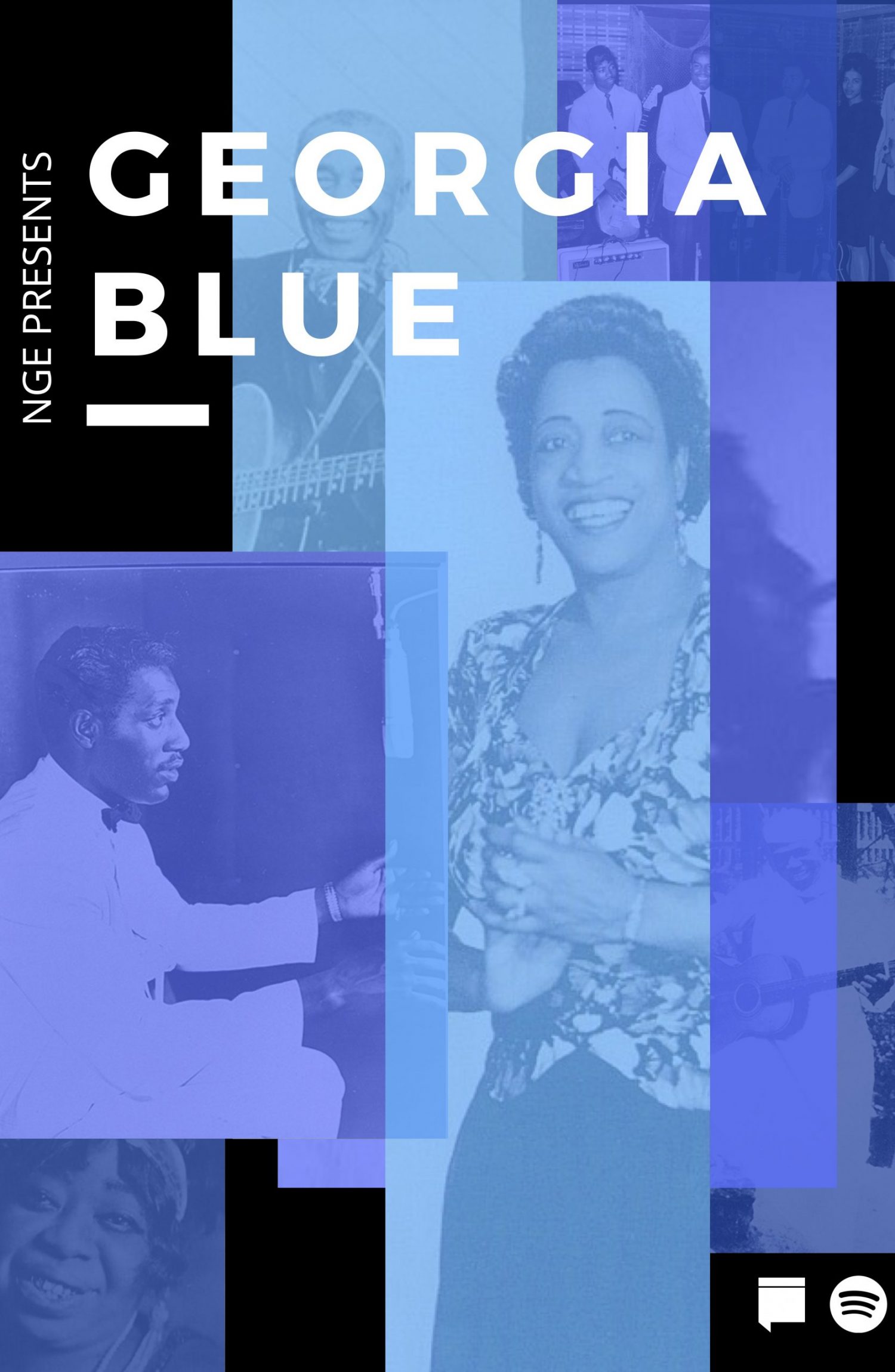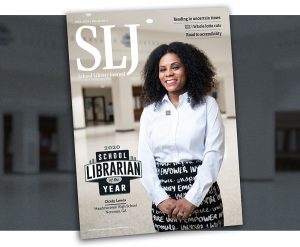Think, Question, and Connect
Each week, we’ll debut curated digital content on a variety of different topics. Every edition will follow a loose theme, featuring articles and content from us and our friends and partners.

Our raison d’être at Georgia Humanities is to bring people together—to encourage understanding and foster meaningful conversations. Our work critically examines the topics that have and continue to define our lives.
In this time of uncertainty, we see social distancing as a heroic act of connection between people and communities— to each other and the world around us. Across our state, in communities large and small, rural and urban, social distancing has proven to be a powerful act of solidarity by Georgians in a world that continues to feel more divided—and that, our friends, gives us hope.
Like many of you, we are taking this “new normal” day by day, and we pledge to bring you curated digital content to make you think, question, and connect with a variety of different topics. Each edition will follow a loose theme, featuring articles and content from us and our friends and partners.
For our first edition, we are choosing to highlight stories of women who move us and make us, whether through their own stories and journeys, the stories they’ve created, the larger historical narratives they’ve contributed to, or all of the above. It is certainly not an exhaustive selection of all who could be featured, but we hope it sparks your interest to dig deeper and learn more about women who have changed and continue to change the world as we know it.
We’re still here—at least six feet apart and with fewer than six degrees of separation—reminding you that although we may be distanced, we aren’t disconnected.
—Georgia Humanities
Quick Guide
Watch a virtual tour of And So She Did: Women of the Chattahoochee Valley, an exhibition presented by the Columbus Museum.
Explore the Georgia Women’s Movement Oral History Collection, which documents women’s efforts to pass the Equal Rights Amendment in Georgia.
Listen to Georgia Blue, the latest Spotify playlist from the editors of the New Georgia Encyclopedia.
Learn more about the acclaimed fiction writer, playwright, poet, essayist, and journalist Pearl Cleage.
Engage with the authors nominated for the 2020 Townsend Prize, the state of Georgia’s most prestigious literary award.
Read more about Cicely Lewis, the 2020 School Librarian of the Year.

It may be temporarily closed to the public, but that hasn’t stopped the Columbus Museum from bringing art and regional history to life.
The museum’s latest exhibition, And So She Did: Women of the Chattahoochee Valley, is now available online through a guided preview with the museum’s curator of history and exhibitions manager, Rebecca Bush.
The exhibition commemorates and celebrates the 100th anniversary of the ratification of the Nineteenth Amendment, and it spotlights the Columbus origins of the Georgia women’s suffrage movement.
From the works of renowned author Carson McCullers to photographs of educator Elizabeth Frances Cantey, the exhibition includes images and archival documents that explore other forms of women’s political power and social activism into the twenty-first century.

The Georgia Women’s Movement Oral History Collection began in 1995 as part of the Georgia Women’s Movement Project, a joint undertaking of Georgia State University’s Women’s Studies Institute and the Special Collections Department of the university library.
The collection is composed of recorded interviews, which describe participants’ efforts to pass the Equal Rights Amendment in Georgia and relate to their participation in religious, political, and other organizations. Interviews with women of different backgrounds and experiences are featured throughout the collection, and highlights are included below.
Jean Davis, born and raised in Newnan, attended Morris Brown College and taught public school in Atlanta. As a student at Morris Brown, she was involved in the civil rights movement and participated in the boycotts of Rich’s Department Store and sit-ins at Woolworth’s. In Davis’s interview series, featured in the collection, she describes her struggle to support both the civil rights movement and the women’s movement—which was largely considered a white, middle-class effort. Davis recalls, “I couldn’t see how I wanted to be a person who advocated for white women when white women weren’t advocating human rights for everybody.”
Ann Deeley, a previous president of the Feminist Action Alliance (FAA), championed women’s rights as an activist and businesswoman in Atlanta. Deeley completed her M.A. in occupational psychology at the University of Kentucky, and as a member of the FAA, became focused on local issues such as writing legislation to protect sexual assault survivors and career planning for women. Deeley played a role in establishing the rape crisis center at Grady Hospital in Atlanta, and even served as a volunteer counselor at the center’s beginning. She recalls, “And we would agree to go down and spend the night at Grady and be there as an advocate for anybody who came in….And we saw people and we were advocates, and then we would go to the court, if need be, and really just stay there with the family and interface with the police.“

Georgia Blue includes the songs of pioneering female artists who played pivotal roles in establishing the blues genre, including Ida Cox and Ma Rainey.
Ida Cox grew up in Cedartown, near Rome, and left home as a teenager to tour with a minstrel revue. Cox excelled at vaudeville singing, but when the popularity of vaudeville shows began to fade, she transformed herself into a formidable blues singer. In 1923 she made her first blues recordings with the Paramount label, met with immediate success, and went on to record seventy-eight songs between 1923 and 1929. Cox wrote most of the songs that she recorded, and as some of her peers achieved success and popularity, Paramount promoted Cox as the “Uncrowned Queen of the Blues.”
Gertrude Pridgett Rainey, better known as “Ma” Rainey, was styled as the “Mother of the Blues” and was one of the most important of the early blues singers. The Columbus native played a central role in connecting the less polished, male-dominated country blues and the smoother, female-centered urban blues of the 1920s. Ma Rainey was one of the first women to incorporate blues into minstrel and vaudeville stage shows, blending styles from country blues, early jazz, and her own personal musical idiom. In her five-year association with Paramount, Rainey became one of the first women to record the blues professionally, eventually producing more than 100 recordings of her compositions. For more than three decades, she toured the South, the Midwest, and Mexico with her husband, “Pa” Rainey.
The New Georgia Encyclopedia is program of Georgia Humanities in partnership with the University of Georgia Press, the University System of Georgia/GALILEO, and the Office of the Governor.

The acclaimed fiction writer, playwright, poet, essayist, and journalist Pearl Cleage has lived in Atlanta since 1969. Her writing draws on her experiences as an activist for AIDS and women’s rights, and she cites the rhythms of black life as her muse. Cleage’s work often invites people to examine the messier parts of humanity, and explores issues of race, gender, and identity.
In her writing Cleage is zealous about issues of black life she feels need a forum for discussion, and she promotes practical education with regard to these issues whenever possible. Her work has been recognized at national and regional levels, including as a recipient of the 2018 Governor’s Awards for the Arts and Humanities.
Cleage was interviewed on GPB’s On Second Thought last year to discuss the Alliance Theatre premiere of her play Angry, Raucous, and Shamelessly Gorgeous, which explores what it means to be an older woman in contemporary culture, tackling aging and intergenerational relationships. Cleage, a playwright-in-residence at the Alliance, also sat down for an interview with the Alliance artistic director Susan V. Booth to discuss her inspiration for the work.
“We danced too wild, and we sang too long, and we hugged too hard, and we kissed too sweet, and howled just as loud as we wanted to howl, because by now we were all old enough to know that what looks like crazy on an ordinary day looks a lot like love if you catch it in the moonlight.”
— Pearl Cleage, What Looks Like Crazy on an Ordinary Day

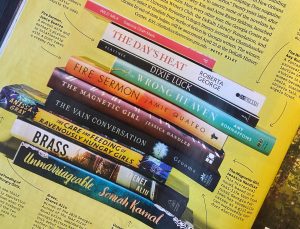
April 2020 feature, Atlanta Magazine.
Every other year, the Georgia Center for the Book, the Atlanta Writer’s Club, the DeKalb Library Foundation, and Georgia State University Perimeter College’s literary journal the Chattahoochee Review select ten works of fiction by Georgia writers for the Townsend Prize, the state of Georgia’s oldest and most prestigious literary award.
Although the April 2020 awards ceremony was cancelled, we have highlighted other ways to engage with the authors and their respective works below.
Wild Milk by Sabrina Orah Mark | The poet’s first book of fiction. Read an interview with the author discussing her latest work on The Millions, an online magazine offering coverage on books, arts, and culture.
The Day’s Heat by Roberta George | George, founder of Valdosta’s venerable literary magazine Snake Nation Review, is only recently published at age 80 although she’s been writing all her life. The author discusses her journey, and how a local priest told her not to publish her book, in an interview with the Atlanta Journal-Constitution.
The Wrong Heaven by Amy Bonnaffons | The author is currently working on her Ph.D. at the University of Georgia. This is her first published collection of short stories. NPR’s Ailsa Chang interviewed Bonnaffons about her work in 2018 (and the author has since published the novel The Regrets).
Fire Sermon by Jamie Quatro | The author’s debut novel follows the story of writer Maggie and poet James. Watch the author read an excerpt of her novel at Politics and Prose, a bookstore in Washington, D.C.
The Magnetic Girl by Jessica Handler | Handler’s debut novel was a 2019 Decatur Book Festival humanities track pick, and the journey of the novel’s protagonist, Lulu Hurst, was inspired by the New Georgia Encyclopedia entry on the “Georgia Wonder.” Listen to WABE’s Lois Reitzes and author Jessica Handler discuss the coming-of-age story.
Unmarriagable by Soniah Kamal | The author’s take on Jane Austen’s Pride and Prejudice follows five Pakistani sisters as they navigate society and their romantic lives. Watch the author’s TEDx talk Redreaming the Dream or read her Q&A from ARTSATL.
Brass by Xhenet Aliu | The author’s debut novel navigates a mother-daughter relationship through parallel narratives in a Connecticut former-factory town. Read the author’s essay on how being a librarian makers her a better writer on Lit Hub, or the Georgia Review’s take on the novel.
The Care and Feeding of Ravenously Hungry Girls by Anissa Gray | After more than 20 years as a journalist, the author pursued her love of storytelling with this debut novel, which follows the story of three sisters as their family’s life is upended by an arrest. Listen to the author discuss her work on the Reading Women podcast.
Dixie Luck: Stories and the novella Terminal by Andy Plattner | Published by our friends at Mercer University Press, Plattner’s Dixie Luck features stories about optimistic southerners from Hot Springs, Arkansas, to the Atlantic Coast. Read the Literary Review’s take on the work.
The Vain Conversation by Anthony Grooms | Inspired by a true story, this novel examines the 1946 lynching of two black couples from the perspectives of a victim, a suspect, and a witness. Read the Atlanta Journal-Constitution’s feature of the author discussing his latest work or the New Georgia Encyclopedia’s entry on the author.

Cicely Lewis, the School Library Journal’s 2020 School Librarian of the Year, is the media specialist at Meadow Creek High School in Norcross.
Lewis is the founder of Read Woke—a program she debuted as a reading challenge for her students in September 2017 and which has since grown into a worldwide effort to get students to read. The program was named the American Library Association’s best literature program for teens in 2019.
Books have always played a significant role in Lewis’s life. She was an avid reader growing up in Mississippi, but remembers that she didn’t read a lot of books written by people who looked like her. Lewis started Read Woke to encourage students and staff in her school to read books that better reflect their lives, have a protagonist from an oppressed or marginalized group, and give voice to the voiceless.
“Reading is my superpower,” she says, “I’m really good at getting kids connected to [books].”
Check back each week for the latest edition of curated digital content, or subscribe to our newsletter below.

